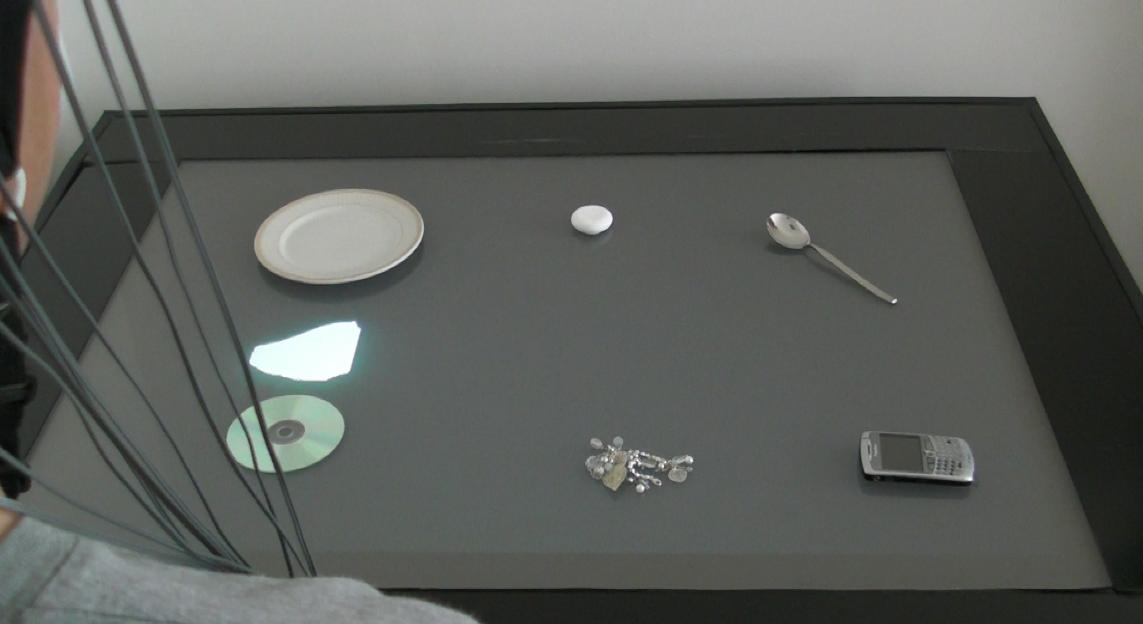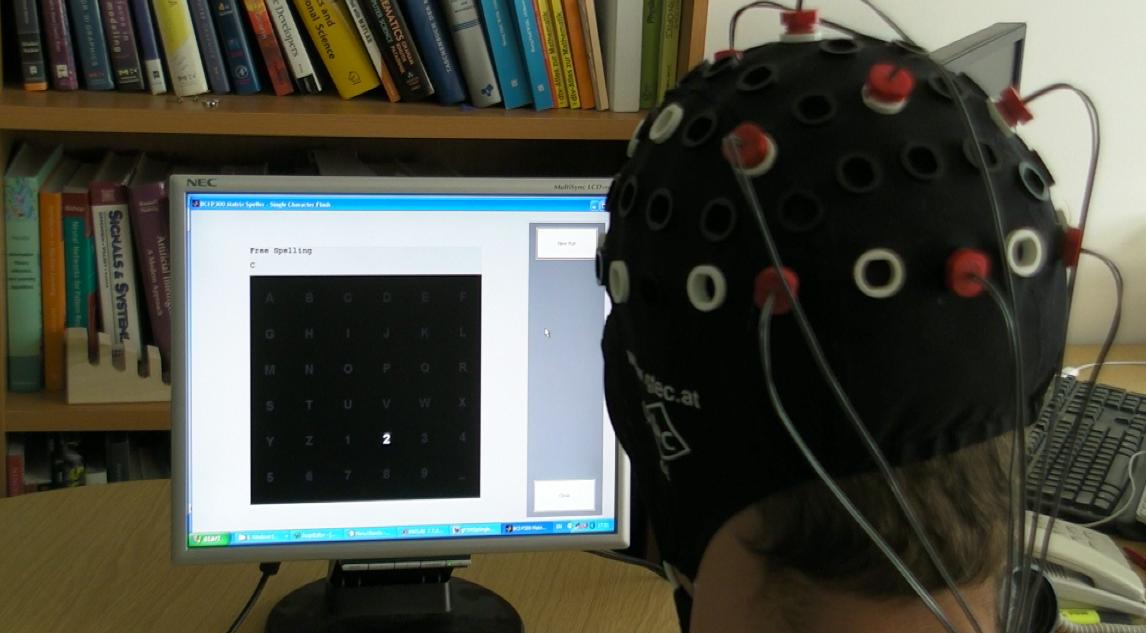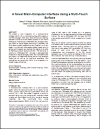| |
| Abstract |
| We present a novel integration of a brain-computer interface (BCI) with a multi-touch surface. BCIs based on the P300 paradigm often use a visual stimulus of a flashing character to elicit an event related potential in the brain's EEG signal. Traditionally, P300-based BCI paradigms use a grid layout of visual targets, commonly an alphabet, and allow users to select targets using their thoughts. In our new system a multi-touch table senses objects placed upon its surface and the system can highlight the objects on the table by flashing an area of light around them. This allows us to construct a P300-based BCI that uses a user-assembled collection of objects as targets, rather than a pre-determined grid layout. An experiment shows that our new paradigm works just as well as the traditional paradigms, thus highlighting the potential for BCIs to be integrated in a broader range of situations. |
| |
@Article{Yuksel:2010:CHI,
author = {Beste F Yuksel and Michael Donnerer
and James Tompkin and Anthony Steed},
title = {A Novel Brain-Computer Interface
Using a Multi-Touch Surface},
journal = {ACM Transactions on Computer-Human
Interaction (Proc. SIGCHI 2010)},
year = {2010},
volume = {TBD},
number = {TBD},
pages = {TBD}
} |
| |
|
|








